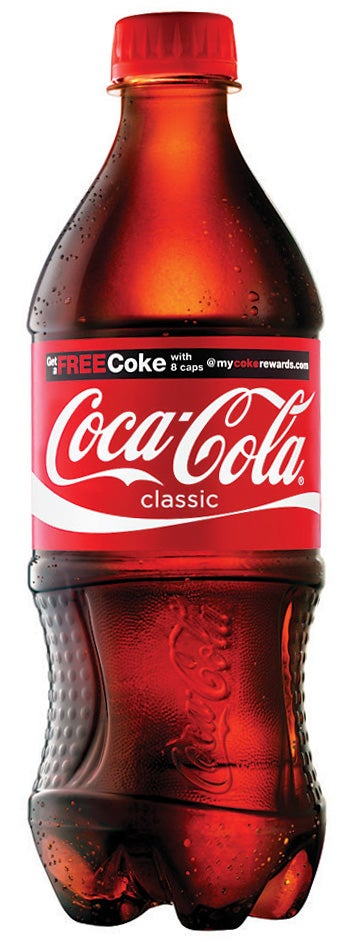Coca-Cola’s PlantBottle begins global roll-out

The Coca-Cola Company's PlantBottle packaging, first unveiled in May, is beginning to arrive on store shelves around the globe, Coca-Cola announced November 16. PlantBottles are made partially from plant materials and are 100 percent recyclable, says the company.
PlantBottle PET (polyethylene terephthalate) packaging is made through a process that turns sugar cane and molasses, a by-product of sugar production, into a component for plastic. The bio-based component will account for between 15 and 30 percent of PlantBottle packaging, with recycled plastic also making up a percentage of bottle content. Just like traditional plastic, the new packaging is 100 percent recyclable, but is not biodegradable.
Other beverage companies have recently unveiled greener packaging techniques, most often creating lighter bottles that contain less plastic. In 2008, Pepsi announced it had reduced the amount of plastic in its 500ml non-carbonated beverage bottles by 20 percent. Nestlé's half-liter Eco-Shape bottle, unveiled in 2007, contains 30 percent less plastic and sports a 30 percent-smaller label.
Throughout Denmark, Coca-Cola classic, Light, and Zero are now available in PlantBottle packaging. The PlantBottle will make it to Western Canada in time for the Vancouver 2010 Winter Olympic Games, and in the Western US, carbonated drinks and water will be on shelves starting in January. Future launches are planned in Brazil, Japan, and Mexico, and for China's Shanghai Expo in 2010. By the end of 2010, Coca-Cola hope to have produced 2 billion of the new bottles.
The Coca-Cola Company is the world's largest beverage company, with people in more than 200 countries consuming nearly 1.6 billion servings of Coca-Cola products per day.
Join our commenting forum
Join thought-provoking conversations, follow other Independent readers and see their replies
Comments